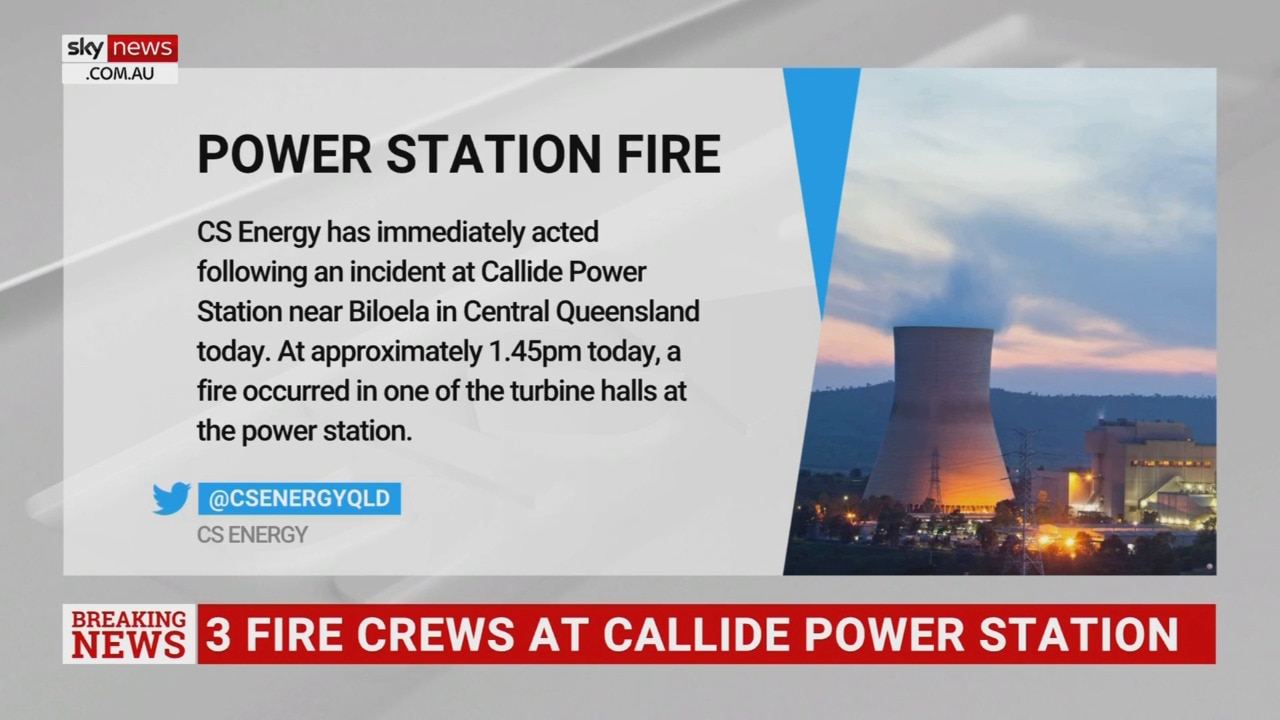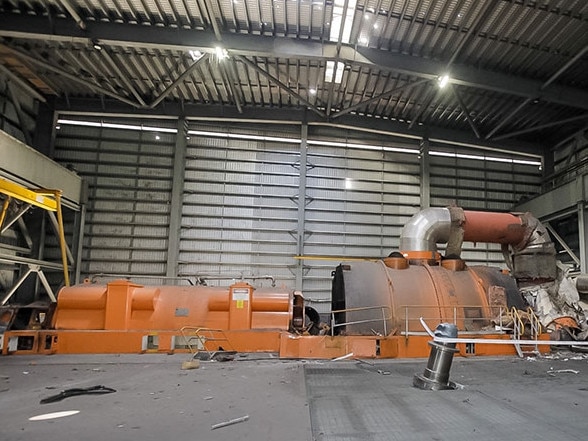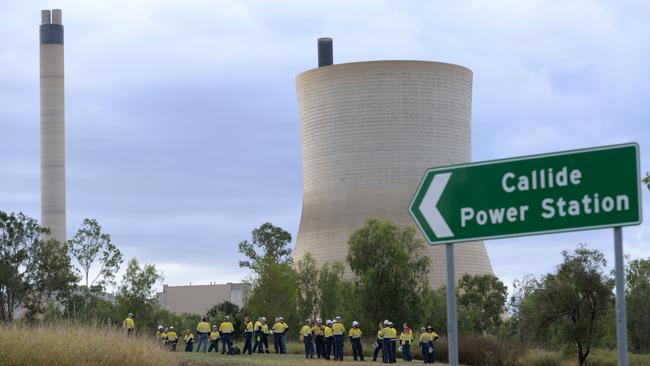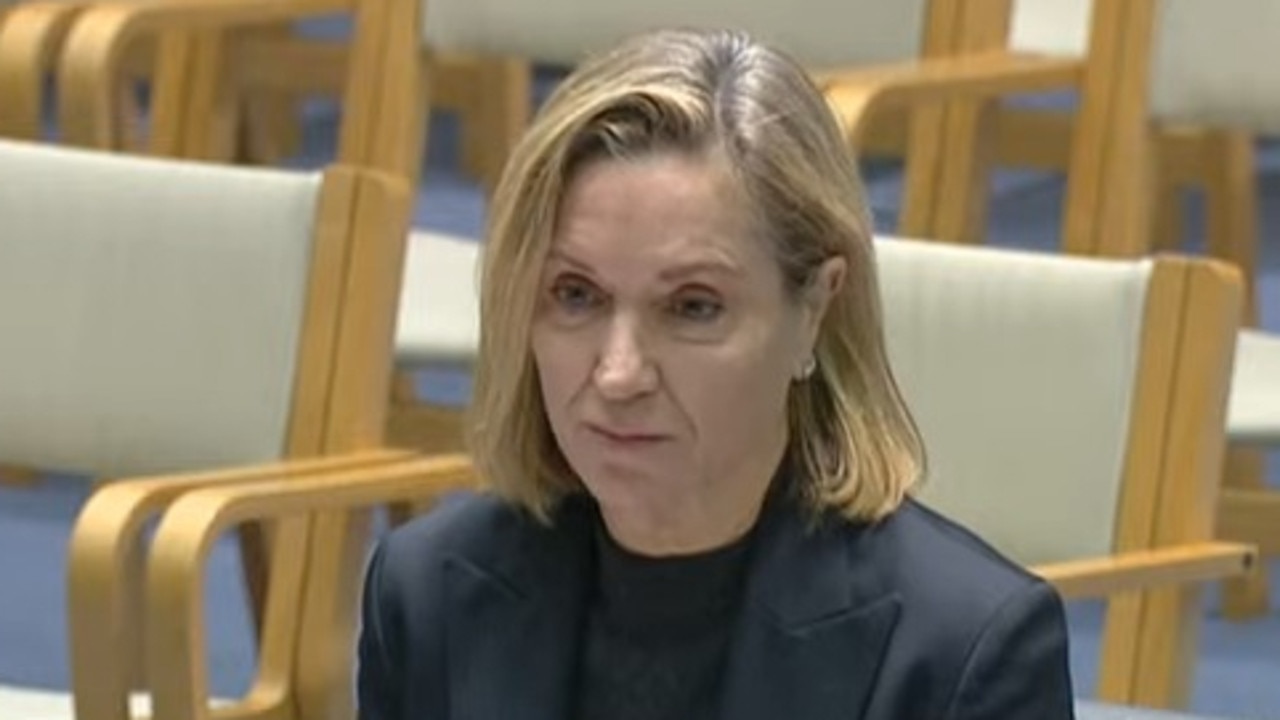Queensland Premier orders review after revelations CS Energy was to blame for power plant explosion
A damning report has found chaos and cost-cutting at the Queensland government’s CS Energy contributed to a power plant explosion that pushed up energy prices across the east coast.

Business
Don't miss out on the headlines from Business. Followed categories will be added to My News.
A damning report has found organisation chaos and cost-cutting at the Queensland government’s CS Energy were major contributors to a power plant explosion that pushed up energy prices for consumers across the east coast.
The findings are contained in a draft report of forensic engineer Sean Brady, released by CS Energy on Tuesday after months of pressure from The Australian newspaper, amid a fight for control of the privately-owned half of the Callide C plant.
The release comes after Queensland Premier Steven Miles ordered a review of the operations of state-owned power provider CS Energy, and said special advisers will be appointed to the board in the wake of revelations its own decisions have been blamed for the catastrophic explosion at the Callide C power plant in 2021.
Dr Brady’s draft report found that CS Energy failed to “implement effective process safety practices that would have increased the likelihood of identifying and managing the risks” associated with installing new equipment at the plant.
The explosion was caused when Callide’s main turbine tripped, and back-up battery systems failed to alert workers that the generator was drawing – rather than delivering – power to the grid.
The turbine subsequently exploded after hydrogen used to cool the turbines caught fire. The catastrophe took out power to almost 500,000 Queensland customers, and the loss of Callid C – still to return to full capacity – has helped push up energy prices across the National Electricity Market.

Dr Brady’s draft review points to a litany of failures across CS Energy, with the failure to source an adequate battery charging system that was “fit for purpose” leading directly to the explosion.
But the forensic engineer’s review of organisational factors also pointed to major failings by the company’s management, board – and of the state government, which is CS Energy’s sole shareholder.
CS Energy has two significant structural influences. As a government-owned corporation it is obliged to meet shareholder mandates, as well as meet the annual performance indicators contained in the Statement of Corporate Intent,” the draft report says.
“In the years leading up to the incident, these mandates focused on cost savings, and performance indicators were dominated by financial and production metrics, as well as personal safety-related metrics.”
The company’s board responded by setting management metrics focused on personal injury, plant availability and financial performance – which did not include a focus on the management of process safety, the draft report says.
“Between 2017 and the incident in 2021, Callide experienced significant turnover of key roles. This turnover would make it difficult to maintain a process safety focus,” Dr Brady’s report says.
Between 2017 and the May 2021 explosion, Dr Brady says, the Callide power station had four different general managers, three different maintenance managers and five different production managers.
“CS Energy implemented a swirl of at least 6 major initiatives across the organisation which impacted sites in a short period of time prior to the incident. This would also make it difficult to focus on process safety.”
Mr Miles said on Tuesday the government will appoint special advisers to the CS Board and ordered the Queensland Treasury department to review CS Energy’s management and structure to ensure the company is “aligned to deliver on the Queensland Energy and Jobs Plan, optimise energy transition and ensure downward pressure on consumer prices, while maintaining operating and business performance”.
“The maintenance of directions date back to 2012 when Tim Nichols and the LNP were in charge,” he said.
“What we take responsibility for is what we do now and it makes sense that for the last period of time our focus was getting the generators back up and running and that will be done in the next few weeks.”
The Premier’s decision comes after The Australian revealed the draft conclusions of forensic engineer Sean Brady into the Callide C explosion included criticism that CS Energy’s purchasing decisions led to the disaster and were not “fit for purpose”.
CS Energy has previously said the explosion was ultimately caused by the failure of battery back-up systems, but – based on draft findings by Dr Brady – the federal court was told on Monday that the systems failed because a battery charger installed by CS Energy was “not fit for purpose”.

CS Energy has fought for months to keep Dr Brady’s report from public view, but findings read to the court – in a hearing aimed at slowing the sales process of the half of the generator owned by private investors – include criticism of both CS Energy and its board, and the state government mandate that helped strip the company of cash.
“The decision to replace the battery charger was made by someone not responsible for that process. In going to market CS Energy focused solely on price, with little or no technical input or oversight. The technical specifications that had been submitted for the charger did not establish or require that the battery charger could actually operate within its systems,” the court was told.
“And unsurprisingly, the product they got was not fit for purpose.”
Mr Miles on Tuesday stood by Energy Minister Mick de Brenni and said he remained the best person to lead reforms in the energy sector.
“I haven’t yet been able to read the entire technical report, but it finds that it was caused by a new battery charger, an upgrade to the battery charger, replacement of the battery charger,” he said.
“Mick de Brenni is the minister best placed to implement these strong reforms.
“He’s overseeing the recommissioning of the Callide generators that will occur, that will be finished over the next few weeks.”

Mr Miles said the government would take 100 per cent control of Callide Power Station, ending a joint-venture with IG Power.
He said the maintenance claims by Dr Brady were “draft opinions” and “do not represent his final advice”.
Lawyers for Czech investor Sev.en told the federal court the purchasing decision surrounding the battery charger was “flawed from start to finish”.
Lawyers for Sev.en said that Dr Brady’s draft work also noted the CS Energy board lacked the “competency” to assess risk within the company’s business, with only one director at the time having a power industry operation background.
“And yet the board was responsible for setting the risk appetite for CS Energy,” the report says.
And, despite the ongoing legal action by Sev.en, which is aimed at halting a move by CS Energy to buy back half of Callide owned by private investors, Mr Miles said the government remained committed to returning the power station into sole public ownership. Sev.en is arguing CS Energy should not be allowed to benefit from its own incompetence in allowing the power station explosion.
A government review of its publicly owned energy businesses is expected to heavily scrutinise the performance of CS Energy – which has created frustration for the state government with its response to the Callide explosion.
Mr Miles said the review would focus on optimising the energy transition, putting downward pressure on consumer prices while maintaining operating and business performance.
It will report to the government before the 2025 state budget.
Originally published as Queensland Premier orders review after revelations CS Energy was to blame for power plant explosion


